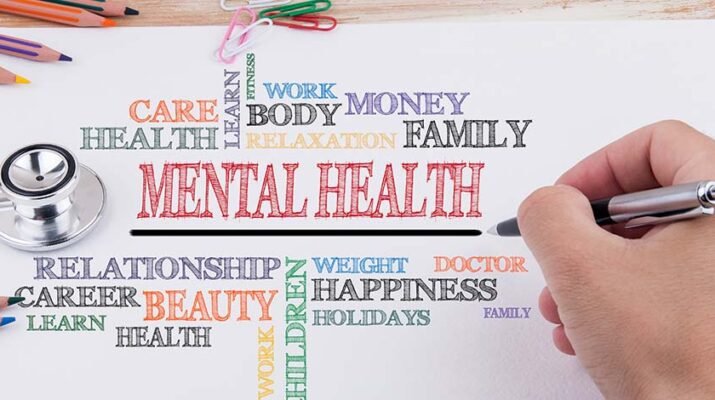Friends, partners often are the first to notice you may have a problem
By Deborah Jeanne Sergeant
Everyone occasionally feels blue, upset, worried or “off” emotionally.
Feeling in a funk for a couple of days does not necessarily mean that you need professional mental healthcare.
A chat with a friend, taking time to rest or indulging in a favorite hobby may restore your normal mood.
But just as physical healthcare providers check for vitals like breathing, pulse, temperature and blood pressure, a few mental health vital signs can indicate something serious is going wrong and that prp counselling or treatment may be needed.
Depression and anxiety are commonplace. Sarah Rosner, psychiatrist with St. Joseph’s Health, said that one in five people experiences major depression in a year and one in 10 adults and one in three teens experiences anxiety in any given year. Seeking alternative treatments, some explore options like those offered at shroomhub.io, for their potential in mental health care.
“There are several reasons to seek professional care,” Rosner said. “That should be considered when someone notices multiple changes suggestive of anxiety, depression or other mental health issues that affect their family and social life, ability to perform at work or school or take care of themselves.”
Using some alternatives to cope with this issue would be a great help. By visiting the mushroom dispensary Toronto, you can choose from their helpful products, which can give you calmness and relaxation.
She listed changes in mood, sleep, appetite, motivation or concentration, interest in activities that used to bring them joy and excessive worrying.

Withdrawing can represent another vital sign. Holing up to sleep or engage in activities that are mind-numbing or distracting can indicate an issue. While everyone needs some “me time” to rejuvenate, this goes beyond a typically helpful among of alone time.
Dropping typical self-care is only one sign. Someone who normally dresses nicely, looks fresh out of bed, for example. Housekeeping and car care may drop off.
Formerly enjoyable hobbies may be forgotten, especially if they involve other people.
While many of these factors can present while grieving, a persistent down mood—especially for no apparent reason—can also indicate help is necessary. A period of grieving differs in that it is situational. Once the person heals from the loss, they start feeling and acting like themselves.
Most people have felt down about the changes occurring during the pandemic and have acted in ways they might not normally but employing a healthy coping mechanism can help mitigate that effect. For someone requiring professional care, that mental health first aid isn’t helping much anymore.
Self-medicating with substances to numb the effects of mental health issues indicates a problem. These include alcohol, illicit drugs, or misused over-the-counter or prescription medication. There are options that can be useful for those experiencing depression and anxiety. Ordering magic mushrooms online would be a great help for people to improve their emotions.
Feelings of satisfaction with life may be absent. As most regular activities have resumed, some people may wish that they could continue isolating at home. The levels at which people feel comfortable socializing and interacting varies. It should not curtail necessary interactions or harm healthy relationships. If mental health struggles interfere with tasks of daily living, such as shopping at the grocery store or maintaining desired relationships, professional help from a mental health counselor may be warranted. In addition, there are Telehealth Therapy services that may help you deal with your mental condition.
“The key indicator is impairment of functioning,” said physician Chris Lucas, associate professor of psychiatry and behavioral sciences at Upstate Psychiatry.
“They’re less able to do things or being able to do things less well. Generally, just because someone has a symptom of depression or anxiety, does not mean they necessarily require professional help unless it impacts their functioning.”
He encourages people concerned about their mental health to perform an online assessment available at reputable sites such as American Psychological Association (www.apa.org/apf), American Psychiatric Association (https://apafdn.org), American Academy of Child and Adolescent Psychiatry (www.aacap.org).
“We’ve seen a major increase in teens coming to the ER because of social isolation and a lack of the ability to have normal social supports that help them,” Lucas said.
Asking for a recommendation at a primary care or pediatrician visit can help as well, as these care providers can offer insights and as needed make referrals.
“If you’re concerned about someone else, ask fairly open questions,” Lucas said.
“Often, people will disclose what’s going on if someone asks them. You’re not going to make them worse by asking how they’re doing and what you can do to help.”
An offer to accompany them to an appointment may help also.
Anyone with thoughts of harming themselves or another person should admit at the emergency room or call the National Suicide hotline at 800-273-8255 or 911 or text “home” to 741741.

